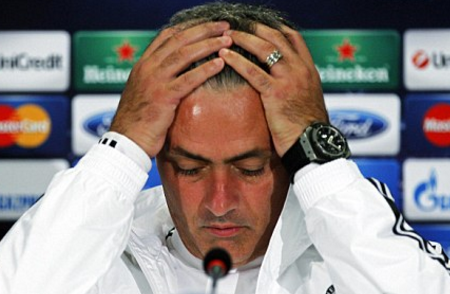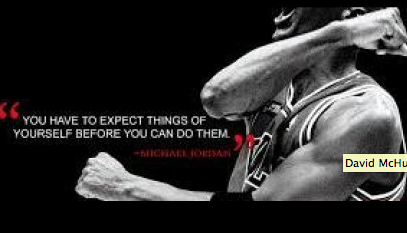This was the teams second season in the top division and it was always going to be a massive step up, particularly after losing 5 players from last years starting 11 along with 2 more from a squad of 15, this was a big re-shuffle. So we welcomed 8 new lads and we basically start again.
Come Sunday lunch time I was licking my wounds and writing like crazy on how I was going to approach training Tuesday. In the last 5 seasons we haven’t experienced a defeat quit like this one and it wasn’t like we didn’t try to play and keep the good habits; for parts we did but we also lacked the concentration & desire required to compete for entire game.
So when the refs blows his final whistle and the scoreboard reads the wrong way – a big loss. You start to look inwards and need to find solutions quickly. So after everyone left the park and went about their day, I hung on and spent sometime alone.
So how to turn a bad day into a good week, that was going to be key. I was looking for answers.
The first thing was to focus on the positives of the game. It’s too easy to focus on what went wrong and let that negativity lead into the next game. I had to focus on what went right and how to correct the mistakes. Everyone made mistakes, including me, so my aim was to try and improve the lads by putting a plan in place.
Coach John Wooden once said
“Too often, coaches spend the time on everything that went wrong and don’t focus on the positives”. “Think about the positives things. How can we take the things that went right in the game into next week?”
John Wooden was always big on positive energy, not negative energy.
By focusing on the positives the players won’t dwell on the negatives.
So the questions I asked:
- Give me 5 things we did well?
- 5 things we didn’t do so well?
- What do we need to do in order to get better?
- What do we need to stop doing in order to get better?
At the end of training on Thursday, it was time to focus on the new goals and motivate the players for the weekends game.
- Speak to the players individually.
- Bring up the things they did well, even if they did things, not so well.
- Motivation and positive feedback, even an arm around them was key to getting the players ready for game 2.
- This was not going to be the time when I lay into the players. This was the time to build up their emotional tank.
“Losing is part of the game. If you never lose, you are never truly tested, and never forced to grow.”
Time to build up the emotional tank!
How?
So, whether you’re a coach or captain, be sure to set new goals for the next game rather than focus about the most recent loss. Motivate the rest of the team with positive feedback and encouragement throughout the week ahead.
When we are having to motivate the players, we are talking about adding fuel to their emotional tank. If the emotional tank is full the players have the capacity to play their best.
What is this emotional tank, that I’m referring too? It’s like a gas tank in a car. When it is full, we run well, but when it is empty, we can’t go very far.
Why is it important that we keep each other’s tanks full?
If our Emotional Tank is empty, we become negative, and we give up easier. If our tanks are full, however, we are optimistic and are able to handle difficult situations. As the coach, I will do my best to help fill Emotional Tanks of players. I need to help them be as positive as possible in order to play well.
When someone misses a clear chance and someone says, Nice miss (sarcastically), this is going to have a negative impact on the player. This can be know as draining the Emotional Tank.
When you criticise or insult the players, you make them feel worse and you drain their Emotional Tank. Sometimes you have to correct to help them learn the game.
As a coach, I will try to do this in a way that keeps your Emotional Tank full.
We win together and lose together.
One bad back pass didn’t make the team lose the weekend’s game. While it is very easy to blame one player for a mistake, remember that the game is a team effort. In the past I might have pointed the finger but it takes 11+ players to win or lose a game. As a coach I have to make sure I’m there to lift the players up again.
“You have no choices about how you lose, but you do have a choice about how you come back and prepare to win again.”
Time to think about the next game
The best way to motivate the team is encourage the players to move on to the next game. We either win or we learn (Thanks Drew). Last week we learned…we learnt a lot. I talked with players about ways to address aspects of the game that went right and ones that went wrong but once Thursday’s session was finished it was time to focus on the next game. I let the players know that come Sunday morning when they wake up, that is the start of a whole new week, so it’s time to erase the the past and focus on the here & now.
So ultimately what really matters the most is our mindset (a positive one), our work rate, our effort, our memories good and bad. The win’s and losses aren’t important. The most important thing is the experience, the journey and creating positive memories – because at the end of the day that’s what’s going to bring the team together, that’s what they will remember the most and no matter if we win or lose our effort and respect for each another is where the real winning lies.
This season is going to be an especially great season if we support each other and keep our Emotional Tanks full. With full Emotional Tanks, we will be ready to for the battle, and there is no limit to what we can accomplish.
I’ll end with this great quote,
“Losing is only temporary and not all encompassing. You must simply study it, learn from it, and try hard not to lose the same way again. Then you must have the self-control to forget about it.” – John Wooden
-End
I always like to hear your opinions and views. If you feel you have something to say, please comment below or email me info@thecoachdiary.com If, you don’t have anything to add then please forward this on to a friend. As always, thanks for reading.
I’m also on twitter @Coachdiary






